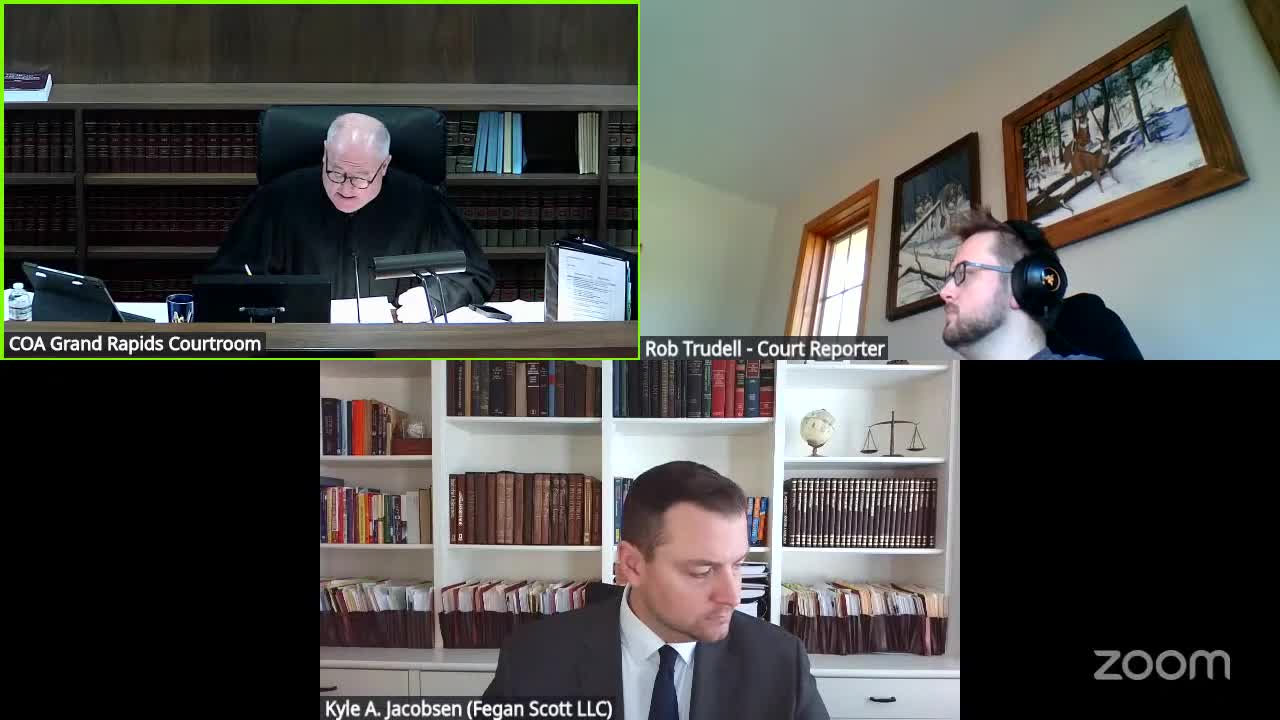Court of Claims sets Jan. 12, 2026 trial; orders structured exhibit books and in‑person experts
Get AI-powered insights, summaries, and transcripts
Subscribe
Summary
The presiding judge in the Michigan Court of Claims set a bench trial for Jan. 12, 2026, and ordered plaintiffs and defendants to exchange detailed witness and exhibit lists on a tight timetable, require experts to testify in person, and use a single, organized exhibit book system.
The presiding judge in the Michigan Court of Claims set a bench trial to begin Jan. 12, 2026, and ordered detailed pretrial deadlines and courtroom procedures intended to make the presentation of thousands of claims orderly and manageable.
The order requires plaintiffs to provide a list of substantive witnesses and the exhibits they intend to use by Nov. 19, 2025; the defendants must provide their list by Nov. 26. Plaintiffs may supplement their lists through Dec. 5 and defendants through Dec. 12. The judge directed the parties to produce a joint exhibit list, organized into sections for admitted plaintiff exhibits, admitted defense exhibits, contested plaintiff exhibits and contested defense exhibits, and to exchange objections before the Dec. 12 joint‑list deadline.
Why this matters: the litigation arises from events in May 2020 and involves consolidated claims by a large plaintiff group. The judge said the court must be able to follow an orderly, sequential presentation of documents and witnesses so it can reach a dispositive liability decision efficiently. In setting the schedule the judge emphasized both fairness and the court’s need for a single, searchable exhibit structure.
The judge clarified a range of trial logistics. A final pretrial conference by Zoom is set for 10 a.m. on Jan. 5, 2026; counsel and persons with settlement authority were told to be available. On courtroom procedure, the judge said he will "recommend" opening statements be limited to 30 minutes but allowed up to a 60‑minute cap if a side requests it. On testimony, he ordered that "any expert witness must be present in court for the entirety of their testimony" and said expert testimony will not be permitted by live remote appearance except for preexisting De Bene esse depositions. Non‑expert witnesses who cannot be compelled to appear may, by necessity, be presented by deposition or remote means, but the court emphasized it prefers live testimony.
Parties and court staff also discussed on‑site logistics: the Attorney General’s office will likely use a nearby office as a defense headquarters, judges authorized an extra counsel table layout in the courtroom, and the judge suggested counsel coordinate with his assistant (Ms. Thomas) about a conference room and equipment needs. The judge noted the courtroom capacity is about 53 seats and advised that overflow will be handled by livestreaming; seating will be on a first‑come, first‑served basis when capacity is reached.
The judge stressed the schedule will include a safety valve: limited supplementation will be permitted only for 'extraordinary circumstances' supported by written justification. He told counsel he will memorialize the deadlines and exhibit organization in a written order after the conference.
The judge closed by noting these instructions assume no appellate stay; if a stay is entered by a higher tribunal, the trial court’s authority may be limited and the schedule would be affected.
